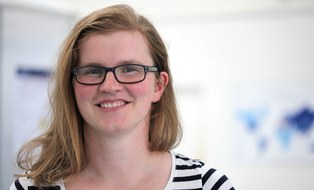Improved degradation and enhanced infiltration rates in soil-aquifer-treatment (SAT) by hydraulic manipulation (SAT-PLANNER)
The research project SAT-Planner was initiated and coordinated by the Institute for Groundwater Management at TUD with contributions from members of the Research Group INOWAS.
Project type
Collaborative Research Project
Funding
German Federal Ministry of Education and Research (BMBF), Germany
Ministry of Science, Technology and Space (MOST), Israel
Duration
07.2017 - 12.2020
Project coordinator
Technische Universität Dresden, Institute for Groundwater Management
Cooperation partners
Ben-Gurion University of the Negev (BGU), Jacob Blaustein Institutes for Desert Research (BIDR), Israel
TECHNION - Israel Institute of Technology, Center for Research in Environmental & Water Resources Engineering, Haifa, Israel
Israel National Water Company (MEKOROT)
G.U.B. Ingenieur AG, Zwickau
Description
The main objective of this research is the development of tools for planning of new and optimization of existing sites for infiltration of reclaimed urban waste water with focus on aquifer recharge and the use of soil passage for water treatment. Given that: (a) most of the desired water treatment is aerobic; and (b) land availability in urban regions is limited and expensive, we target optimization process under land constraints. This is to be achieved primarily through improved hydraulic operation of soil-aquifer-treatment (SAT), and exploration of small diameter wells as a mean to shift part of the treatment into deeper strata without using more land.
The underlying hypotheses are: (a) water quality and biodegradation efficiency in SAT can be improved by increasing the oxygen availability at various depths, mostly through hydraulic operation; (b) entrapped/confined air has a significant role in the biogeochemical processes; and (c) small-diameter wells can be used as a hydraulic measure to enhance recharge performance as well as treatment efficiency. The proposed research includes column and tank experiments, field measurements, numerical mechanistic modeling of the physical and biochemical processes at laboratory and field scale, and development of optimization/design tools.
Innovations in this research include: (1) rethinking SAT as a pseudo-reactor, rather than passive approach; (2) the consideration of entrapped air not only as an impeding factor for infiltration rates but also as a favoring factor for biodegradation, which can be controlled through pond hydraulics management; and (3) the use of small-diameter infiltration wells as a land-saving alternative. This will allow enhancement of the operation at SHAFDAN and offers potential for a wide range of SAT, managed aquifer recharge (MAR), bank filtration (BF) and general disposal of urban waters through recharge facilities.
Contact
 © Catalin Stefan
© Catalin Stefan
Research Associate
NameDr. Jana Sallwey
Projects: TERESA
Send encrypted email via the SecureMail portal (for TUD external users only).
Research Group INOWAS
Research Group INOWAS
Visiting address:
Pratzschwitzer Str. 15, Room 205
01796 Pirna
